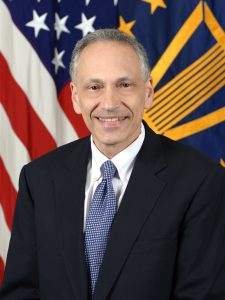On September 26, Forward Defense senior fellow Robert Soofer coauthored a piece in RealClearDefense along with Dr. Keith Payne, Dr. John Harvey, and the Hon. Franklin Miller. Soofer and co-authors discussed the longstanding decision of the United States to reject the strategy of intentionally targeting cities and civilian populations in the event of a nuclear conflict. They argued that the United States should avoid these “counter-city” deterrent strategies, even as the United States will likely soon face two near-peer nuclear powers, Russia and China. Instead, the authors suggest, the United States should continue to pursue a deterrent which avoids civilian populations to the extent practicable and focuses on targeting the military capabilities and tools of power of authoritarian regimes.
With the addition of China to the familiar U.S.-Russian deterrence dynamic, the new ‘tripolar’ threat environment is significantly different from the Cold War bipolar context. But the critical advantages of a counterforce/city avoidance-oriented deterrent remain, as do the severe failings of intentionally targeting population.

Forward Defense, housed within the Scowcroft Center for Strategy and Security, generates ideas and connects stakeholders in the defense ecosystem to promote an enduring military advantage for the United States, its allies, and partners. Our work identifies the defense strategies, capabilities, and resources the United States needs to deter and, if necessary, prevail in future conflict.
